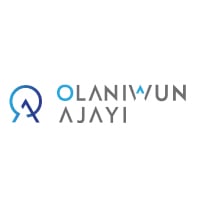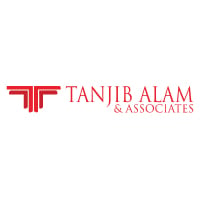

UAE General counsel | Deloitte & Touche (M.E.)











Abdul Rahman Batakji
UAE General counsel | Deloitte & Touche (M.E.)
How do you manage legal aspects during instability or crises?
During periods of instability, I adopt a scenario-based legal strategy that aligns closely with the organisation’s broader risk and resilience framework. The goal is to ensure that legal considerations are seamlessly integrated into operational decision-making, enabling leadership to act decisively while remaining compliant.
This approach begins with rapid regulatory mapping to identify legal exposure across jurisdictions and assess where evolving laws or emergency measures may affect operations. We then conduct contractual stress testing to evaluate key provisions such as force majeure, termination rights, and liability clauses, ensuring that the organisation is prepared for potential disruptions.
Equally important is maintaining stakeholder-centric communication, ensuring clarity, transparency, and consistency across internal teams and external partners. In times of uncertainty, the legal function must operate not as a siloed adviser, but as a strategic enabler that balances speed, compliance, and continuity.
What are the main attributes that a modern in-house counsel should possess?
The modern in-house counsel must combine legal expertise with strategic, technological, and human insight. Strategic agility is essential — the ability to pivot fluidly between legal precision and business pragmatism, adapting to changing priorities without losing sight of governance. Digital fluency is equally critical, as legal teams must understand how technology impacts compliance, operations, and risk management.
In addition, empathetic leadership underpins trust and collaboration across departments, fostering a culture where legal is viewed as a partner rather than an obstacle. Finally, scenario simulation — the ability to anticipate and model legal outcomes under evolving regulatory or geopolitical conditions — allows counsel to guide the business with foresight and confidence.
How do you approach digital transformation?
I approach digital transformation through a compliance-first lens, ensuring that innovation is grounded in strong governance and data protection principles. Before any new technology is adopted, we conduct data mapping and classification to understand information flows and risk exposure.
Every vendor undergoes rigorous due diligence, aligned with UAE data protection laws and relevant international standards. We also implement automated audit trails to ensure transparency, accountability, and traceability in digital processes.
Beyond compliance, I advocate for legal technology adoption that enhances efficiency, accessibility, and consistency — empowering teams to work smarter without compromising confidentiality or ethical standards.
What role does the legal team play in fostering an ESG culture?
The legal team plays a pivotal role in embedding environmental, social, and governance (ESG) principles across the organisation. General counsel can champion ESG by integrating ESG clauses into supplier and partnership contracts, ensuring that sustainability expectations are clearly defined and enforceable.
We also lead training programmes on ethical governance and sustainability, equipping teams with the knowledge to make responsible decisions. Collaboration with HR and operations ensures that ESG metrics are tracked, reported, and aligned with both regulatory requirements and the organisation’s purpose.
Ultimately, the legal function must evolve from gatekeeper to culture shaper, reinforcing ESG as a strategic imperative that drives long-term value and trust.
What is the legal team’s role in sustainability matters?In my recent engagements, I have seen leading organisations integrate sustainability through initiatives such as green procurement policies, carbon reporting frameworks, and circular economy models. The legal team supports these efforts by structuring sustainability-linked contracts, advising on regulatory incentives and compliance, and ensuring transparency in ESG disclosures.
Through this proactive role, legal departments help embed sustainability into corporate governance, turning commitments into measurable action.
How have you supported diversity and inclusion initiatives in your organisation?
I prioritise inclusion by embedding it into both structure and culture. This includes implementing blind recruitment protocols to eliminate unconscious bias, and establishing mentorship programmes that support the development of underrepresented legal talent.
We also promote cross-functional collaboration to break down silos and encourage diverse perspectives in problem-solving and decision-making.
For me, diversity and inclusion are not simply policies — they are lived values, reflected in how we communicate, lead, and resolve conflict. A truly inclusive team is one where every individual feels seen, heard, and empowered to contribute their best.
General counsel | Deloitte